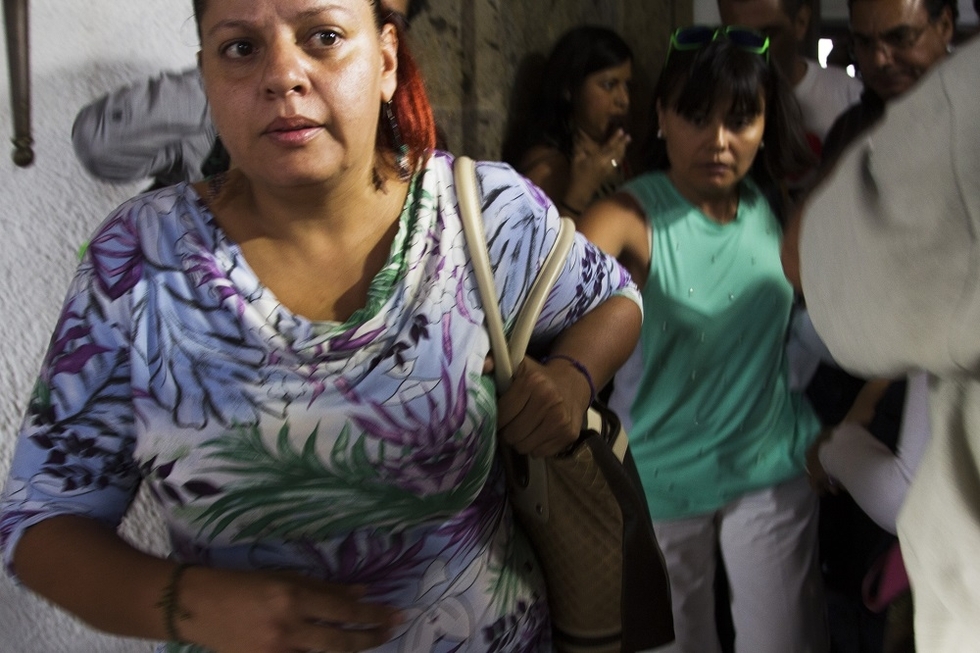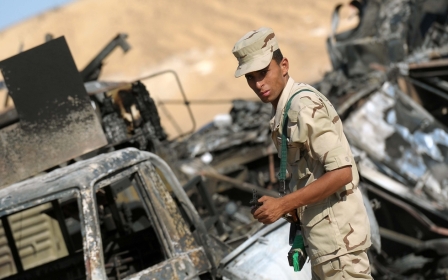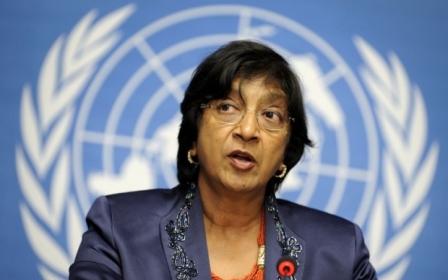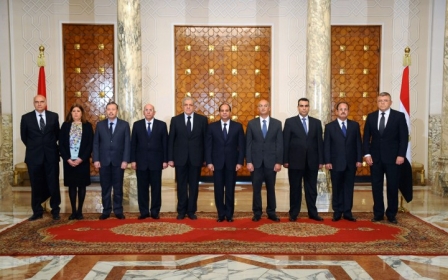Mexico foreign minister heads to Cairo for answers on tourist killings

Mexico's foreign minister was headed to Cairo on Tuesday with relatives of tourists mistakenly killed by Egyptian security forces, after her government demanded an urgent investigation into the "unjustified attack".
Claudia Ruiz Massieu flew out of Mexico City late on Monday vowing to seek answers from Egyptian authorities on the attack that killed 12 people including eight Mexicans.
Egyptian authorities have said the tourists entered a restricted area in the country's vast Western Desert and were "mistakenly" killed while security forces chased militants who had abducted and beheaded an Egyptian they said worked for the army.
But Ruiz Massieu said before leaving Mexico that six Mexican survivors had told their ambassador they had "suffered an aerial attack with bombs launched by a plane and helicopters" after stopping for lunch by the side of the road.
The Mexican government said on Tuesday that eight nationals were killed in the attack. It had previously confirmed the deaths of two of its citizens.
Six others had been unaccounted for until now.
The foreign ministry said in a statement that Mexican diplomats "had access to the remains of victims of the attack and were able to confirm that they correspond to the six Mexicans who were part of the group of tourists".
"We face a terrible loss of human lives and an unjustified attack that obligates us to make the protection of our citizens the priority," Ruiz Massieu told reporters at Mexico City's international airport before departing with relatives of some of the victims and doctors to care for the wounded.
Ruiz Massieu said she would hold talks with top Egyptian officials to "clear up the circumstances of this deplorable event, which has cost the lives of innocent Mexican tourists".
Egypt had pledged to create an investigative committee headed by Prime Minister Ibrahim Mahlab, Ruiz Massieu said.
US State Department spokesman John Kirby said American embassy staff were checking "reports of a potential US citizen involved".
Tourism fears
The incident was likely to raise further fears for Egypt's vital tourism industry, which has struggled to recover from years of political and economic chaos.
About 10 million tourists visited Egypt in 2014, down sharply from a 2010 figure of almost 15 million.
Many Egyptians on social media have criticised the government for suggesting the tourists were at fault for straying into a restricted zone.
The Western Desert, which extends from the suburbs of Cairo to the border with Libya, is popular with tour groups, but is also a militant hideout, with Western embassies warning against non-essential travel to the area.
A senior tourism ministry official told AFP the incident happened as the tourists were between Cairo and the Bahariya oasis, about 350 kilometres (220 miles) southwest of the capital.
Last month, Egypt's branch of the Islamic State group beheaded a Croatian worker for a French oil company who was abducted near Cairo, at the edge of the Western Desert.
IS in Egypt said in a statement on Sunday it had "resisted a military operation in the Western Desert".
The group published pictures of its fighters apparently engaging the military and a photograph of the beheaded Egyptian.
Major Sinai operation
Egypt has been struggling to quell militants since the military overthrew the Muslim Brotherhood president Mohamed Morsi in 2013. The crackdown has focused mainly on the militant's primary holdout in the Sinai Peninsula in the east.
The military last week launched a widescale campaign to uproot militants in the peninsula, claiming to have already killed more than 200.
Nine soldiers, including one killed in a roadside bombing on Monday, have died in the operation, the military said.
The country has one of the region's most powerful and well-equipped militaries, which was further boosted by recent deliveries of F-16 warplanes by Washington and Rafale fighters from France.
The government says hundreds of police and soldiers have been killed, many in attacks claimed by IS's Sinai Province affiliate.
After launching brazen attacks targeting security forces in North Sinai over the past two years, militants are increasingly adopting tactics similar to the main IS group in Iraq and Syria.
In July, the group claimed an attack on the Italian consulate in Cairo that killed one civilian, and it also took responsibility for the killing of an American employee of oil company Apache last year in the Western Desert.
New MEE newsletter: Jerusalem Dispatch
Sign up to get the latest insights and analysis on Israel-Palestine, alongside Turkey Unpacked and other MEE newsletters
Middle East Eye delivers independent and unrivalled coverage and analysis of the Middle East, North Africa and beyond. To learn more about republishing this content and the associated fees, please fill out this form. More about MEE can be found here.




